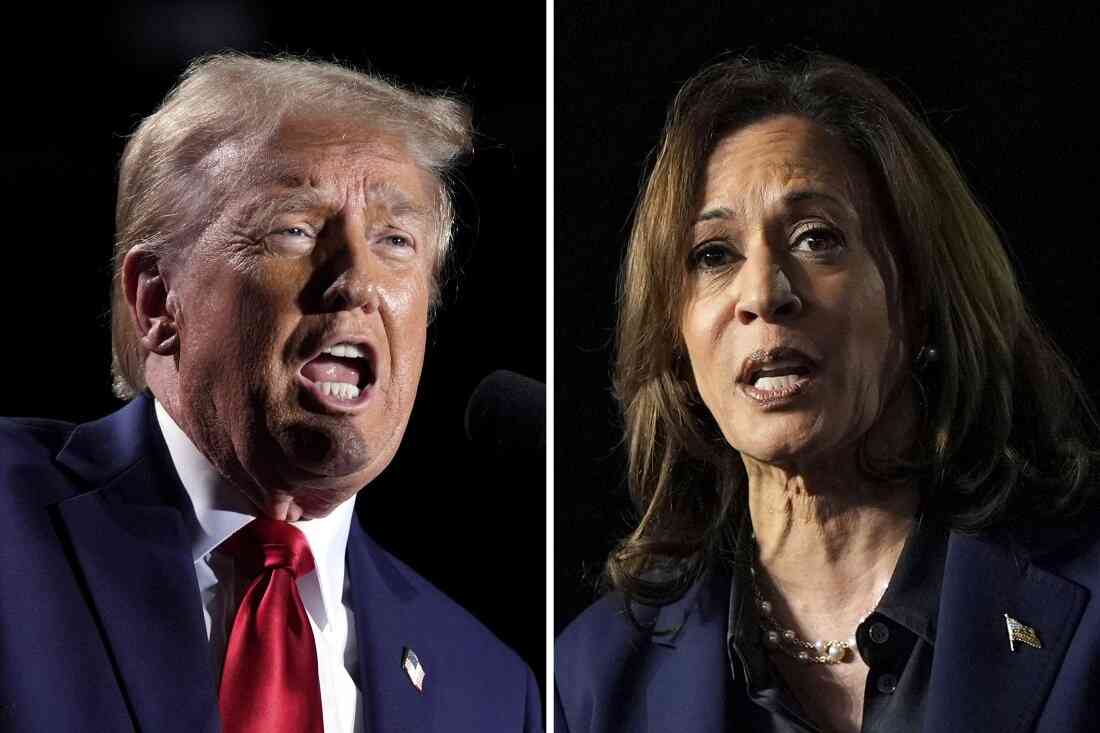
UNITED States presidential election polls continue to forecast a virtual tie between Kamala Harris and Donald Trump.
Both candidates are said to be searching for anything that might give them a few extra votes on November 5.
Meanwhile, an experienced US political observer who happens to share last names with the Democratic presidential candidate, Kamala Harris, thinks he might have a winning technique.He applied word-of-mouth (WOM) advertising methods for the first time in a political setting in South Africa’s May 2024 elections.
The word-of-mouth campaign technique beneficiary political party increased its parliamentary representation, partly because of this approach. The same individual is taking what he learned from the South African experience to the final crucial days of the US presidential race. This time he has designed a word-of-mouth programme targeting US citizens, who share the surname Harris with the Democratic candidate, Kamala Harris.
He hopes everyone named Harris will cast his or her ballot for their “cousin”.
The man behind the word-of-mouth strategy is Godfrey Harris, a Los Angeles-based public policy consultant who has taught political science at two universities, been a US diplomat and served as a member of US president Lyndon Johnson’s executive office.
Rather than wait for permission or assistance to launch his word-of-mouth campaign in the US, he just took action in the best tradition of a vibrant democracy.
“With just single-digit days left before election day and with more than half the ballots yet to be cast, I decided to take a shot at giving all eligible Harrises a little more clout, a little more pride, and a little more connection to their government,” Harris, who has written more than 75 books on business and public policy topics, said.
- GCC grinding to a halt
- Letter from America: Is former president Donald Trump a hero or villain?
- Chidzivo, Tarakinyu clinch Kabag honours
- Letter from America: Is former president Donald Trump a hero or villain?
Keep Reading
In a close race — as the US election is anticipated to be — every vote is going to count.
Given the indirect way the US elects its presidents; seven medium-sized states will likely decide the ultimate outcome for the entire country. The Los Angeles-based political expert, Harris, is focusing on some 100 000 people named Harris, who live in the seven states that public opinion polls show are currently evenly divided between Donald Trump and Kamala Harris.
The election of a President of the United States does not come about because more citizens vote for one candidate over another.
Much like the methodology used in South Africa to choose its president, a body called the Electoral College selects the US president every four years.
Each state has representation in the College equal to the number of seats it has in the House of Representatives and Senate.
While all states have two senators, the number of representatives is determined by population. For example, California has 54 electoral votes while next door, the state of Oregon has 8.
The candidate who wins the majority of the 538 electoral votes wins the presidency no matter what the popular vote turns out to be.Most US political experts believe seven states are the key to who will win the November election. Harris, who also has advised many US election campaign candidates, as well as those in the UK, Costa Rica, Panama, and recently South Africa, thinks that a word-of-mouth campaign helps voters to remind one another to vote in an election.
“Even in close races, 20% to 25% of eligible voters don’t get to the polls — they forget, they can’t be bothered, they get busy doing other things, or they can’t decide who to vote for,” notes Harris.
Accordingly, Harris is using word-of-mouth techniques adopted for the conditions of an election to get these citizens to actually vote.
“Word-of-mouth advertising is the oldest, least expensive, and most effective form of promotion available — whether for a product, service, idea — or after the 2024 South African experience — an election,” he said.
“The difference between electoral and commercial word of mouth techniques is that when they are applied to an election an incentive is required while no incentive is needed in commercial transactions.”
Harris said that in South Africa, those who responded to the word-of-mouth appeal were assured of responsive contact from the Government’s ministries when needed — their problem, in effect, “would go to the head of the line.”
The political party in South Africa that benefited from the word-of-mouth programme increased its status in parliament by 50%.
“We will know if the word-of-mouth political campaign has helped Kamala Harris in the US presidential election after 5 November 2024,” said the man behind the word-of-mouth campaign, Godfrey Harris.
Harris believes so strongly that word-of-mouth can make a difference in elections — particularly for those candidates without much in the way of campaign funds — that he is writing a book on his experiences in South Africa and the US.
He added: “I think the more competition for votes, the greater people’s participation in their governance.”
“With greater participation in governance, democracy itself is strengthened. All to the good in an era when democracy is so sharply denigrated by Kamela Harris’s opponent, Donald Trump.”
Harris wrote to his “cousins” that America would become “a safer, more equitable and better place if Vice-President Harris becomes the next U.S. president.”
Importantly, he added for all original recipients of his email: “If you have the chance, why not send this email or post its contents on your social media accounts to alert every Harris in your world to join our effort to put a Harris in the White House,” said Godfrey Harris in his campaign for Kamala Harris.
Koro is a Johannesburg-based international award-winning journalist who writes independently on environmental and developmental issues in Africa.











